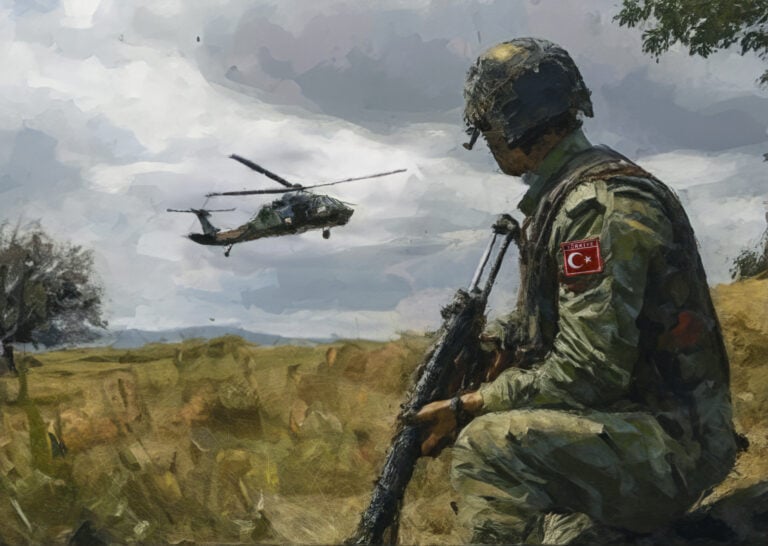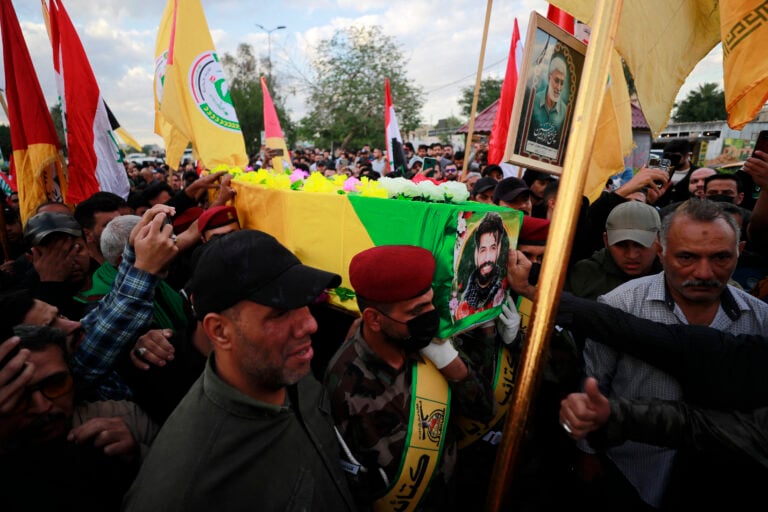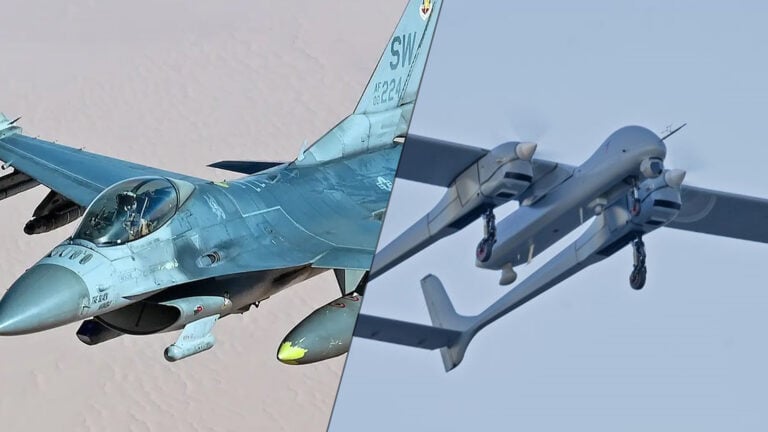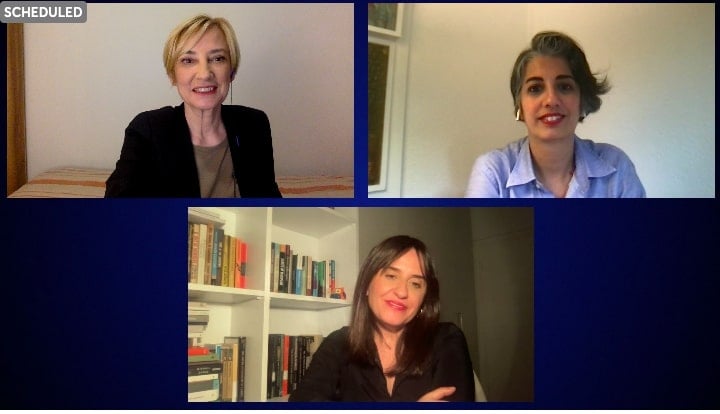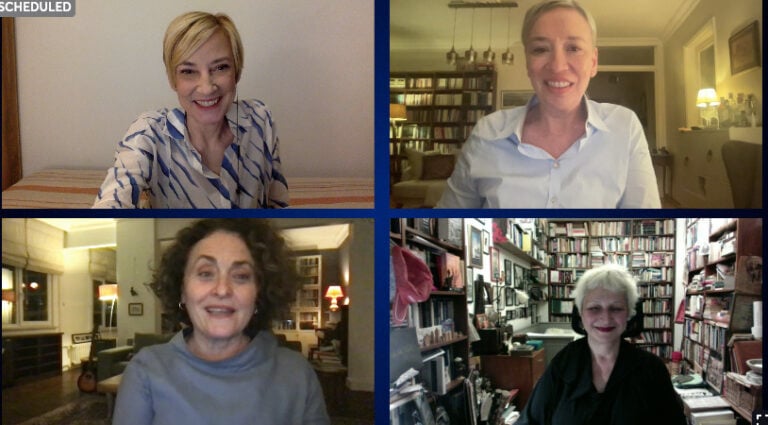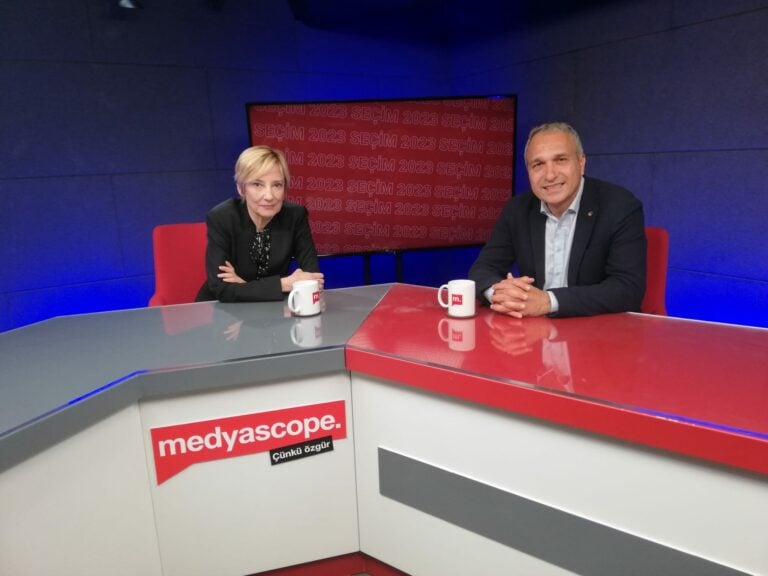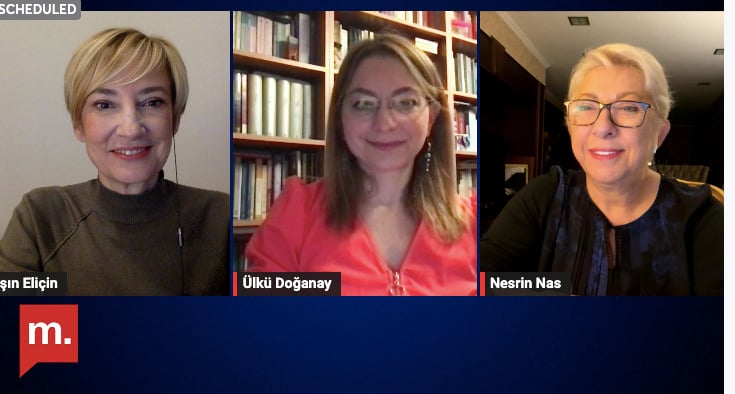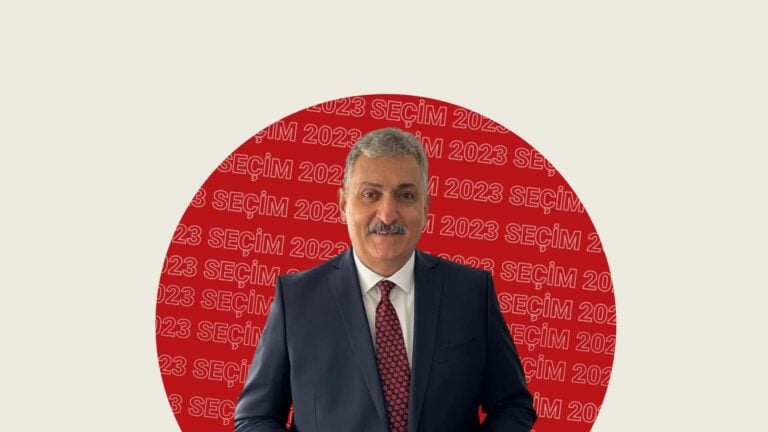Since the US-led invasion of Iraq in 2003 Iraqi Body Count, a web-based project, seeks to ensure that every direct casualty of armed violence in the country is promptly recorded, correctly identified, and publicly acknowledge. IBC was considered in the shortlist of five contenders for the 2015 Nobel Peace Prize and Lily Hamourtziadou is the principal researcher there. She answered our questions regarding their monitoring work and about the mounting civilian toll of the latest Mosul offensive…
We know that the invasion of Iraq has inflicted mass casualties and thanks to your efforts at IBC for many cases we know how those deaths occurred and who had died. How do you work method-wise and why do you do this work, the gloomy job of counting the dead?
Hamourtziadou: Iraq Body Count maintains the world’s largest public database of violent civilian deaths since the 2003 invasion, as well as a separate running total which includes combatants. IBC’s data is drawn from cross-checked media reports, hospitals, morgues, NGOs and official figures or records. Over the years we have worked with UNAMI, Airwars and others casualty recording bodies. The need to secure the civilian and holder of fundamental rights has led to the moral imperative to track, record, document and memorialise the killing and the suffering of those who find themselves in the midst of violent conflict.
In his government-commissioned Iraq Inquiry, Sir John Chilcot underlined the need for documenting the effects of military action on civilians in his report, published on July 6, 2016. It is, in fact, the government’s responsibility, he wrote, to identify and understand the likely and actual effects of its military action.
Although a civil society organisation of limited resources, IBC long ago assumed this responsibility in the absence of government action. We extract whatever information we can about victims from every available report, including location, weapons, time of attack and the identity of each victim. A named victim is a recognised victim, a remembered life, witness to what is lost. Dignifying and memorialising those lost not only recognises the right of every person to be remembered. It also gives victim communities a voice, or at least visibility.

The project started with the invasion and the subsequent occupation of Iraq in 2003, but IBC did not stop counting after when we were told that the American forces were withdrawn and the war was over in 2011. Why?
Hamourtziadou: The war was certainly not over, as civilians continued to be killed on a daily basis all over Iraq: 4,622 civilian deaths were recorded by IBC in 2012, 9,851 in 2013 and 20,179 in 2014, when ISIS entered the country in the middle of that year.
There were fault lines in Iraq before 2003. The state was weak economically, after years of wars and economic sanctions; it was weak politically, with an unpopular dictator, at home and abroad; it was weak societally, clearly divided into Sunnis, Shias and Kurds. The fault lines were to widen so much that they reached the size of trenches. Many factors contributed to that. The initial unprovoked attack of 2003 by one of the world’s most powerful states and its allies was the first one, leaving more than 7,000 dead civilians within a matter of weeks and their bereaved in a true state of “Shock and Awe” – and, one assumes, of rage as well as despair. This attack was followed by years of occupation, insurgency, terrorism and increasingly competing interests. Internally, the interests of the Sunnis, the Shias, the Kurds, the religious fanatics, the secular, the non-Muslim; externally, the interests of the US and the UK, Iran and Syria, all of which want to expand their political and ideological sphere of influence at any cost. Those competing interests led to the internal collapse of Iraqi society and remain the sad legacy of the invasion.
Could you compare and analyse the targets for the last 5 years (since 2011 when we have been told that the Iraqi war over).
Medyascope'un haftalık e-bülteni
Andaç'a abone olun
Editörlerimizin derlediği öngörüler, analizler, Türkiye’yi ve dünyayı şekillendiren haberler, Medyascope’un e-bülteni Andaç‘la her çarşamba mail kutunuzda.
Hamourtziadou: Violence against civilians in the last 5 years:

There has always been resistance through insurgency and terrorism, resistance to the foreign occupier and to its subsequent allied Iraqi state. Groups looking to challenge the US and its allies know their ability to dominate militarily almost every operational environment: land, sea, air, even near-Earth space. One response to superior conventional military power is to challenge superior established militaries using irregular forces, such as insurgents, terrorists and other paramilitary forces that can disperse, choose when, where and how to attack, then blend into the population. Terrorist groups target the non-combatant civilian population and symbols associated with the state (police, military, government employees and buildings etc.) to spread fear, which has always made it difficult to differentiate between “terrorists” and “anti-government / anti-occupation forces”, which may sometimes share no other common goals.The targets have not changed very much, in that they still include security forces, politicians, but also random civilians at markets, attacks carried out in order to destabilise the state. Air strikes also never ceased in Iraq, as Iraqi civilians have been killed by the Iraqi air force, as well as coalition forces (starting in 2014), and more recently Turkish air attacks. Since 2014 executions have risen dramatically, as ISIS fighters have massacred those they see as traitors, or for violating the version of Islamic code imposed upon them.
As to the monitoring violence in Iraq, could you provide us with the statistics to see when were/are the peak times for the last 13 years? And what is/was the toll when it was/is the quietest of times?
Hamourtziadou: The quietest years were 2009, 2010, 2011 and 2012:

Even during the quietest years, 2010-2011, 11 civilians were killed every day on average. What is most significant is that the violence continued to be daily. In fact, since 2003, not one day has been without deadly attacks on civilians in Iraq, not one day unstained by civilian blood.
Since August 2014, again a US led coalition has been launching airstrikes, this time against ISIL/ISIS. How precise were/are those bombings as to limiting the civilian death toll?

Hamourtziadou: We are told that those are ‘precision air strikes’, yet 2,929 Iraqi civilians have been killed by coalition air strikes since August 2014, according to our records.
There was a huge global anti-invasion, anti-war public before 2003. Later though numbers diminished we can say that the anti-war public was still visible before the military intervention in Libya in 2011. Yet since then and especially after ISIS/ISIL came into the scene, there seems to be not much critical stances left against the latest military interventions. Is it because the public sees the fight with ISIS/ISIL a justifiable cause and the subsequent civilian toll as a price worth paying?
Hamourtziadou: The atrocities committed by ISIS seem to have contributed to the justification of continuing western presence and attacks in the region. Moreover, Western mainstream media focus on those atrocities and the limited coverage and non-existent prominence given in those media to killings attributable to coalition forces (unlike in the Arabic media we also monitor), have strengthened the conviction that ‘we are doing the right thing’. Also, the average citizen is not aware or knowledgeable when it comes to global geopolitics, or of prior western involvement with those groups (such as ISIS) that have now taken up arms against the Syrian and Iraqi states.

We are into the 3rd week of the war to retake Mosul from the Islamic State and we have been reading stories of civilian suffering since the very first day. Can you give us any numbers or estimates as to the human cost of this new offensive?
Hamourtziadou: The Mosul offensive has been devastating for civilians in Nineveh. This becomes clear when we compare the first half of October, when around 500 civilians were killed, with the second half, after the start of the offensive, when over 1,750 civilian deaths were reported. Many of these were of course executions by ISIS, not direct killings by Government forces – however, that these executions would accelerate once the city’s “liberation” began was entirely predictable. As ever in war, there may be some winners, but there will inevitably also be losers. The job of a casualty recording organisation like ours is to not allow those deaths to go unrecognised as the price of others’ liberation (if such liberation was indeed the aim and an outcome).

Fallujah, another Iraqi city which has been in ISIS control since January 2014, was recently “liberated”. Were you able to document civilian violence related casualties while the population was under ISIS control? And how is the situation now in the city?
Hamourtziadou: While under the control of ISIS, 2014-2016, 1,200 civilians were killed by Islamic State fighters. During the same period, 78 Iraqi civilians were killed by coalition air strikes on Fallujah. And this year 18 people (5 of them children) were reported to have starved to death. Overall, since the start of the ‘War on Terror’ more than 7,000 civilians have been killed in Fallujah. The city has received little media attention since July, when the offensive ended, and very few civilian deaths have since been reported there.
The aftermath of Mosul’s liberation has already been discussed widely. The risk of liberating groups’ fighting each other, the risk of violence to be inflicted on the population by the very liberators, the risk of sectarian insights and the risk of having many more victims…. What is your take on regarding these fears raised by commentators, analysts, etc.
Hamourtziadou: From my own research I know that ‘liberating’ groups, usually Shia militia, sometimes carry out mass arrests and executions in towns they ‘liberate’. This is the result of Iraq being a failed state, where there is no government or authority that can guarantee the protection and security of the population, and also the result of a fragmented society with a number of groups fighting each other for power and control and a number of competing interests. Those fears are well-grounded.
Turkey was known to be a peaceful neighbour, but Turkish President Erdogan, nowadays, repeatedly appeals to Turkey’s past territorial claims to Mosul. Would you like to comment on Turkey’s involvement in the conflict?
Hamourtziadou: Turkey was initially reluctant to get involved in the invasion of Iraq in 2003. Turkey was, in fact, opposed to the invasion and occupation of the country. Since then, however, as a US ally in the region, Turkey has become involved in the conflict in a number of ways. It has recognised and cooperated with the autonomous Kurdish region that has resulted from the breakup of the Iraqi state. It has also conducted air attacks in areas of Iraq, against the expressed wishes of the Iraqi government, killing civilians in the process. The latest one, on October 24, caused the deaths of 3 civilians in Erbil.
Where does the blame lie for civilian deaths in Iraq and how can we make those accountable? And in an article of yours on IBC, dated 12 November 2007, in addition to those who wage these wars, you also mention the responsibility of even those who oppose these wars. Could you elaborate on this point of view?
Hamourtziadou: The blame has to lie with the perpetrators of violence, and there are plenty of those!
There are perhaps as many as 40 different groups fighting in Iraq, but the major groups of armed insurgency are:
Ba’athists, supporters of Saddam Hussein’s administration, including army or intelligence officers, whose ideology is a variant of Pan-Arabism. Their goal was the restoration of the former Ba’athist government to power, and later joined forces with guerrilla organisations that opposed the U.S.-led invasion. They are increasingly under Syrian influence.
Iraqi nationalists, Iraqis who believe in Iraqi self-determination and advocate the country’s territorial integrity. They also rejected the presence of the coalition forces and took arms against them.
Sunni Islamists, Salafi/Wahhabi “jihadists.” Salafis advocate a return to a strict understanding of Islam and oppose any non-Muslim groups and influences, and regularly attack the Christian, Mandean and Yazidi communities of Iraq. They also attack Shia Muslims, whom they consider apostates.
Shi’a militias, including the Iran-linked Badr Organisation and the Mahdi Army. Shia Islamists are thought to be Iranian-run groups, influenced ideologically and armed by Iran.
Foreign Islamist volunteers, including those often linked to al Qaeda and largely driven by the Salafi/Wahhabi doctrine. They are mostly Arabs from neighbouring countries, Syria and Saudi Arabia primarily, Wahhabi fundamentalists who wish to assist the insurgency against western forces and their allies in Iraq. They are fighting a jihad under the ideological umbrella of Al-Qaeda and Ansar al-Islam.
The warring parties, including the US-led coalition forces and the current Iraqi government forces, have acted to and claimed to: liberate, occupy, subjugate, control, defeat, avenge and defend -territories (the Iraqi state, or parts of it), people (the Iraqis, or various religious and ethnic groups within Iraq) and values (western, muslim, democratic, national). In doing so, they have all killed civilians.
As for the British and American publics, they seem to have forgotten that the war never ceased in Iraq. Both in the US and in Britain, those who decided to invade and occupy Iraq, George W Bush and Tony Blair, against the expressed wishes of their electorate, were in fact re-elected, even after the reports were coming in about the devastation caused in Iraq. No one has been held accountable or been punished for the killing of civilians in Britain. No politicians and no soldiers. The public itself has not worked towards any prosecutions and it is only people like us, at IBC, who still work daily to document innocent deaths and honour the memory of those killed.
In the days previous to the Iraqi occupation, I remember my interview with Ken O’Keefe, an ex-U.S. Marine and Gulf War veteran who was calling people globally to migrate to Iraq and deploy themselves as “Human Shields”. He said to me then “if we can stop this war, we could stop any wars”.. I can’t help but agree with him years after. Would you comment on this view that Iraqi invasion has opened up a Pandora’s box of perpetual wars against which we all began to get insentivized?
Hamourtziadou: I partially agree with this assessment. The Iraq invasion has indeed opened a Pandora’s box, not only in terms of perpetual violence in Iraq, but also in terms of increasing insecurity in the Middle East, with the recent involvement of Russia in Syria. So much so that what used to be a major concern in terms of security for decades, the Israel-Palestinian conflict, has now become almost a non-news item. The British public has not exactly become desensitised, but has mostly reacted in two ways: firstly, it has supported the country’s involvement in the wars, now that Assad, ISIS and Russia are the purported aggressors; secondly, it has become aggrieved and resentful towards the increasing numbers of refugees in Europe and in (far smaller numbers) the UK, apparently heedless of how this disruption can be traced back to actions by the UK from 2003 onwards. As a result of the latter, there is little sympathy towards those in the Middle East, whom the public sees as being largely responsible for what is happening to them. In other words, there is a detachment, when it comes to the civilian population, and an outrage, when it comes to the warring parties –except one’s own army and allies.






